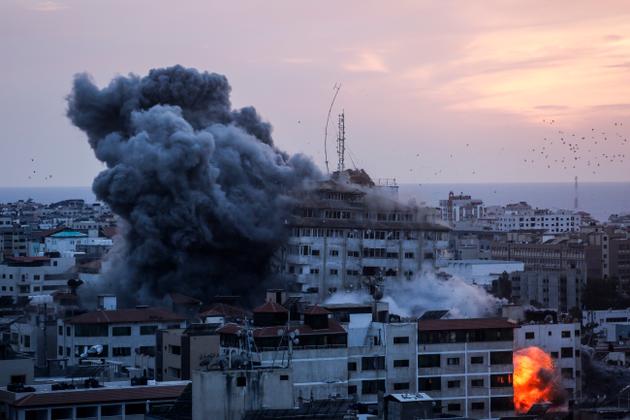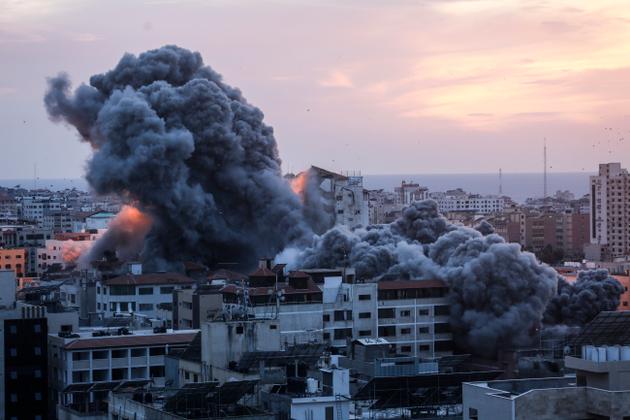

A photographer's Whatsapp messages tell the story of daily life in Gaza
FeatureWhatsApp messages to fellow photographers from Sameh-Nidal Rahmi, trapped in the besieged Gaza Strip, tell of terror and heartbreak under Israeli bombardment.
The WhatsApp group chat was born at a workshop in Beirut in September 2022. Twenty Arab photographers befriended each other there and, via social media, continued to virtually cross the borders across the region. But since October 7, they have been waiting only for the rare messages sent by one of them – Sameh-Nidal Rahmi, who lives in Gaza and writes both in the group and directly to the Lebanese photographer Gabriel Ferneini.
From the first days of the Israeli offensive launched in retaliation to the Hamas attack, electricity in Gaza has been cut off and access to the outside world restricted. Sameh – who people affectionately call Abu Beirut (the father of Beirut, in Arabic) because he named the eldest of his two daughters after the Lebanese capital – tries to capture the agony of daily life in Gaza in pictures.
On October 13, in preparation for the forced transfer of part of the population (in violation of international law), the Israeli army dropped leaflets urging Gazans living in the north of the enclave to flee southwards. Sameh, his wife and two daughters, aged six and one, moved in with his wife's parents in Deir al-Balah, in the center. Sameh takes his daughters out into the garden under the fruit trees. His parents, sister and family join them.
'This is not a life'
"There are hardly any buildings around. That scares me and reassures me at the same time. If they bomb, they'll certainly target the farmland where we are. But, with no buildings in the immediate vicinity, we won't end up injured by debris from an explosion on a neighboring house," he explains to Le Monde.
Sameh tries to capture scenes of everyday life for his people. But he continually comes up against a lack of connection and can't send his photos. Photographers from the WhatsApp group try to act as intermediaries and the story finds its way, through his messages and calls.


Hospitals, residential areas, schools... The bombs left no stone unturned. Dozens of families have been wiped out. "I'm losing all my friends. Every time I ask about someone, they tell me they're dead or under the rubble," says Sameh.
He is haunted by the idea of outliving his daughters: "I became afraid of sleeping, hating rest and the night. As soon as daylight disappears, there's a lot of fighting and bombing all around. They drop a lot of white phosphorus. Some of the bombardments, which come from who knows where, are so strong that it sounds as if they're exploding inside the house. I sleep for two hours and then start thinking about how the building could collapse on us, wondering who will pull us out of the rubble... I try to keep the girls as close to us as possible, so that if anything happens, they'll be with us. Can you hear the drones? It's 24 hours a day over our heads... This is not a life."
You have 55% of this article left to read. The rest is for subscribers only.
